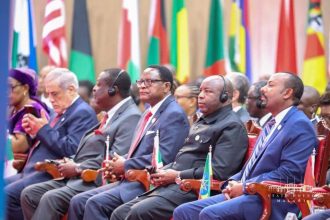Banks cherish 2017, outline prospects
Bankers Association of Malawi (BAM)—a grouping of the country’s commercial banks—has said the just ended year was good for the banking sector.
In a written response to a questionnaire on Friday, BAM chief executive officer Violette Santhe said persistent power outages have, however, been a challenge to its members and clients.
She said the banking industry has also had challenges of non-performing loans.
“We engaged various players on the problem and what came out clear is that there is a lot that needs to be done by a number of stakeholders if access to credit should become a reality for many businesses,” said Santhe.
She said BAM members complain about poor credit culture among most businesses which results in high loan defaults and consequently low access to credit.
Said Santhe: “It is pleasing to note that some of our members have started to reward good payers of loans in various ways.
“The focus on good borrowers is what our members will be encouraged to do in 2018 and beyond. The credit reference bureau will be used as an instrument to discern good customers. It is these [customers] that will enjoy banking in the coming years.”
BAM has since encouraged Malawians to respect the terms of their agreements with banks.
“In most cases, we have seen that litigation has not produced winners. There is no situation that cannot be resolved through genuine conciliation.
“Our members should be ready to look at their customers’ loan situations if genuine dialogue is pursued,” she said.
Speaking on the prospects for this year, Santhe said the association is positive that there will be better growth in 2018 with the hope that there will be continued improvements in the macro-economic fundamentals such as lowering inflation and policy rate and a stable exchange rate.
“Exchange rate stability, low inflation and low interest rates are key to growth of the economy. We hope that the gains obtained this year will be consolidated in 2018.
“Of course, we have the 2019 general elections coming up which has the potential to shift the focus to the detriment of economic stability, but we hope the authorities will keep the eye on the ball to continue by consolidating the economic gains,” she said.
In its 2017 Malawi Business Climate Survey, Malawi Confederation of Chambers of Commerce and Industry (MCCCI) said business performance slightly improved compared to 2016 with businesses rating it as good and fair compared to the ratings of very good and very poor in 2016.
The report, which is an annual survey aimed at measuring the business climate in Malawi and the degree of conduciveness of the business climate, indicates that there are some business environment factors which have had a positive impact on the businesses but others do not.
According to the report, 46 percent of responses show that the expected business performance is good and 32.1 percent show that the expected business performance in 2017 was fair.
In terms of business confidence, a qualitative index of scores of enterprises’ assessment of current as well as future expectations of business climate indicators, the report shows that business confidence improved in 2017 compared to 2016.
Reads the report: “The Business Confidence Index (BCI) in 2017 is calculated at 67 percent against 58.5 percent recorded in 2016.
“This shows that business confidence slightly improved by 8.5 percentage points in 2017 compared to 2016.”
While current and business performance improved in 2017 to 26.92 percent from 17.16 percent in 2016 and 16.50 percent from 15. 69 percent in 2016, investment and employment outlook declined to 14 percent from 17.16 percent in 2016 and 13 percent from 17.16 percent in 2016.
However, the report states that power outages and continued corruption dented the business environment.
In the year under review, inflation rate dropped to a single digit, currently at 7.7 percent as of November 2017.
The continued easing in inflation rate compelled Reserve Bank of Malawi (RBM) to cut policy rate—the rate at which commercial banks borrow from the central bank as a lender of last resort—three times in the year.
The rate is currently at 16 percent, a development that has resulted in commercial banks reducing their interest rates to around 23 percent, giving respite to those who are servicing their loans and enabling individual and corporates to borrow at a reduced rate.
But in an earlier interview, MCCCI president Karl Chokotho said despite gains made as a result of policy rate cuts, power outages has been a thorn in the flesh of the private sector, resulting in increasing overhead costs.





